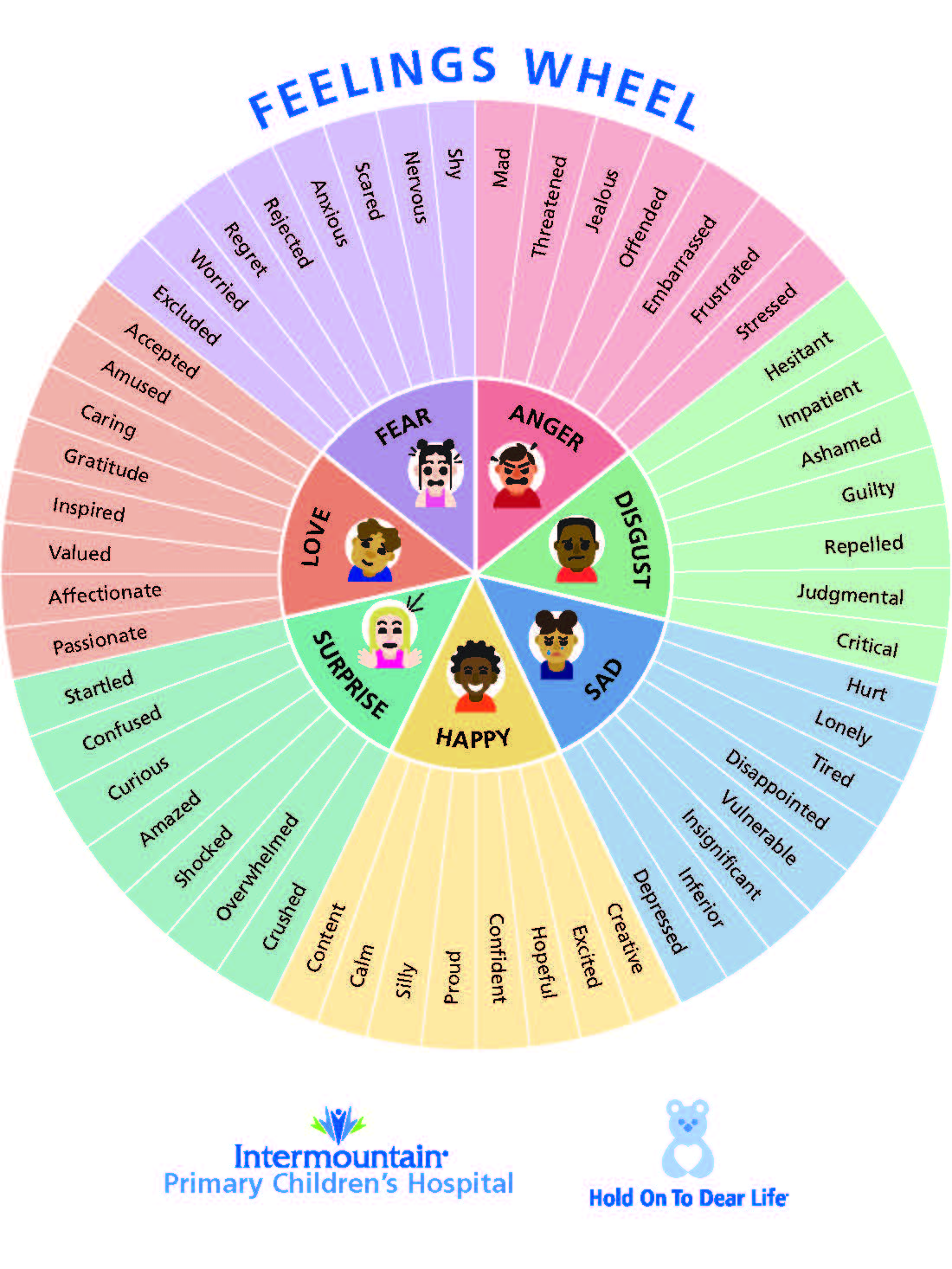The middle school years can be tough. Young people are experiencing many changes physically, emotionally, and socially. Sometimes parents feel a bit at a loss on how to best help navigate these years with their tweens. Primary Children's Hospital developed a new program on Emotional Wellbeing to help families. Aimed at parents of tweens, grades 6 through 9, the program will give skills and tools to coach your child on positive emotional and social health.
While peers naturally become more important to tweens, parents are still a trusted source of information on mental health. The most recent Utah Student Health and Risk Prevention (SHARP) needs assessment survey, youth data shows that when asked “Who, in the last thirty days, did you talk to about feeling sad, hopeless, or suicidal,” 53% of 6th graders and 43% of 8th graders said their parent. The second most common answer was a friend or peer. In research conducted by Primary Children’s tweens and teens told us that they want honest, evidence-based information on mental health, prevention strategies, and healthy coping skills.
How to support your tween's emotional health
How to support your tween's emotional health
By Unknown
Updated
5 minute read
Tools and education for parents
“The goal of the Emotional Wellbeing campaign is to give parents very tangible, action-oriented tools they can use to promote healthy emotional and social health within their family says Jessica Strong, Community Health Manager at Primary Children’s Hospital.
Talking about emotional health may be an uncomfortable topic for some but starting small and having frequent conversations will build confidence for you and your tween. As a parent, you coached them through learning the skills to walk, talk, and eat. Emotional health is a similar process of teaching, encouraging, and practicing skills.
What is emotional health?
Emotional health is the ability to express feelings, adjust to emotional challenges, tolerate frustration, cope with life stressors, and enjoy life. There are three steps that parents can use to foster emotional health for their tweens:
- Identify your own feelings and encourage your tween to name theirs.
- Accept that all feelings are valuable and fleeting. No feeling will stay forever, so don’t rush through uncomfortable feelings; allow your child to sit with them.
- Validate your child’s experience without judgement. Role model how to verbalize emotions; try using the phrase, “I feel (emotion) because (situation), so I will/need (action).
You can also help your child make a plan in advance for how to handle intense feelings, which should include naming the feeling, identifying healthy ways to manage the feeling, such as breathing, physical activity, talking, or an enjoyable activity, and asking for help when needed. Encourage appropriate emotional risks for your tween as well, such as trying out for a team, sharing disagreement about something, or speaking up about something they find important.
The importance of social health and connection
Interacting with other people requires skills and practice, just like learning to tie shoes or climbing the stairs. For a tween, encouraging face-to-face communication and contact will promote the ability to “read” people. As a parent, you may need to coach active in-person listening skills in a digital world, such as appropriate eye contact, putting down devices, and how to politely disagree.
Family time is important, even as peers become more central to your tween, so don’t give up on family dinner or fun time. Talk about characteristics of healthy relationships such as mutual respect, trust, honesty, compromise, and communication.
“Talking about emotional health may be an uncomfortable topic for some, but starting small and having frequent conversations will build confidence for parents and tweens alike,” Strong said. “Parents have coached their children through learning the skills to walk, talk, and eat. Mental and emotional health is a similar process of teaching, encouraging, and practicing skills.”
Tips for conversations with tweens
If you feel like your tween won’t give you more than a one-word answer, try these tips and use open-ended questions:
- Be patient and comfortable with silence
- Consider timing when your tween is relaxed, such as mealtime or in the car
- Start questions with “tell me” or “describe” instead of “how
- Use humor when appropriate
- Remind them that failure is normal and OK
